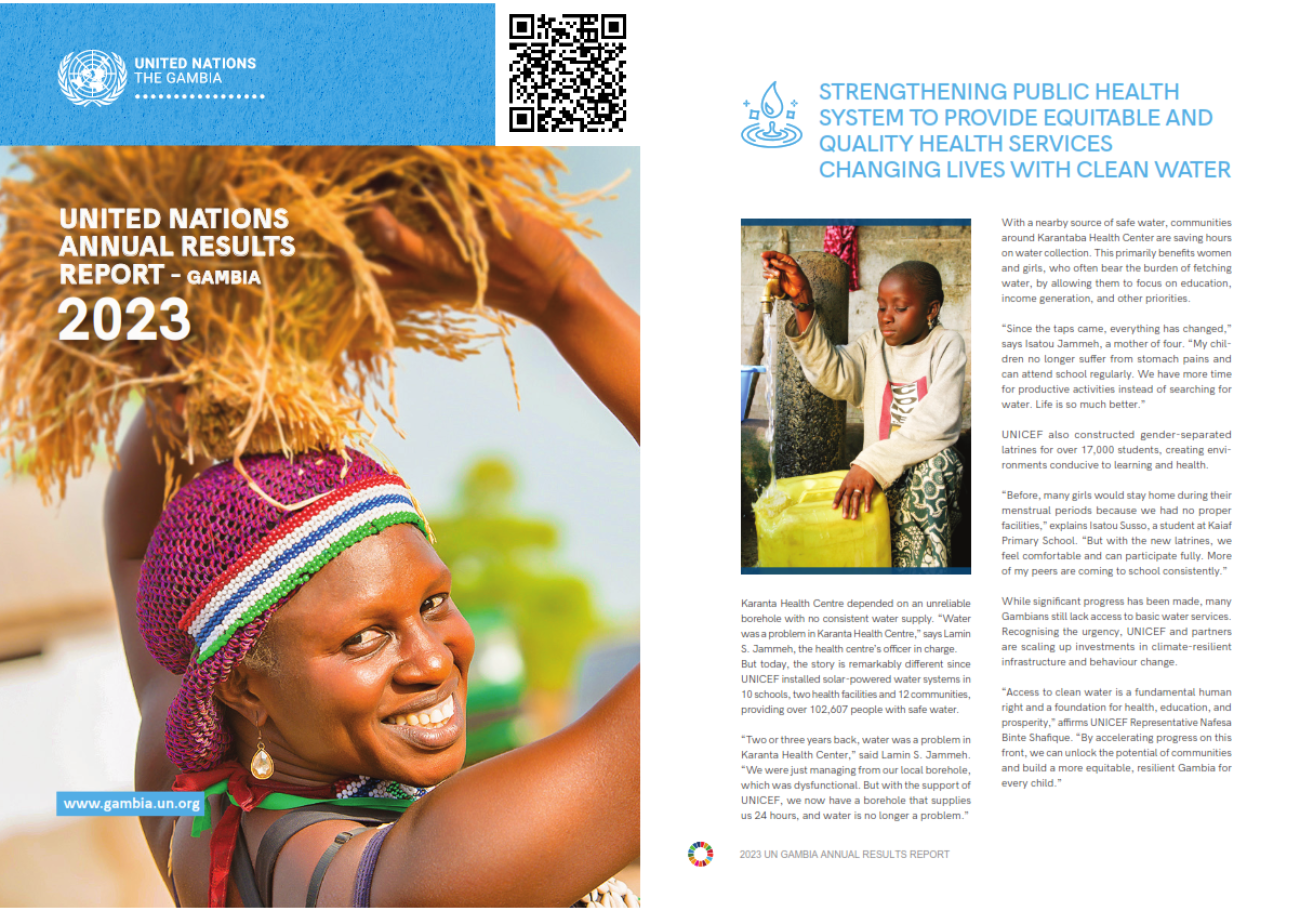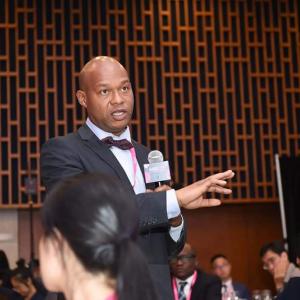CHANGING LIVES WITH CLEAN WATER
With a nearby source of safe water, communities around Karantaba Health Center are saving hours on water collection. This primarily benefits women and girls, who often bear the burden of fetching water, by allowing them to focus on education, income generation, and other priorities.
“Since the taps came, everything has changed,” says Isatou Jammeh, a mother of four. “My children no longer suffer from stomach pains and can attend school regularly. We have more time for productive activities instead of searching for water. Life is so much better.”
UNICEF also constructed gender-separated latrines for over 17,000 students, creating environments conducive to learning and health.
“Before, many girls would stay home during their menstrual periods because we had no proper facilities,” explains Isatou Susso, a student at Kiaf Primary School. “But with the new latrines, we feel comfortable and can participate fully. More of my peers are coming to school consistently.”
While significant progress has been made, many Gambians still lack access to basic water services. Recognising the urgency, UNICEF and partners are scaling up investments in climate-resilient infrastructure and behaviour change.
“Access to clean water is a fundamental human right and a foundation for health, education, and prosperity,” affirms UNICEF Representative Nafesa Binte Shafique. “By accelerating progress on this front, we can unlock the potential of communities and build a more equitable, resilient Gambia for every child.”
Karanta Health Centre depended on an unreliable borehole with no consistent water supply. “Water was a problem in Karanta Health Center,” says Lamin S. Jammeh, the health centre’s officer in charge. But today, the story is remarkably different since UNICEF installed solar-powered water systems in 10 schools, two health facilities and 12 communities, providing over 102,607 people with safe water.
“Two or three years back, water was a problem in Karanta Health Center,” said Lamin S. Jammeh. “We were just managing from our local borehole, which was dysfunctional. But with the support of UNICEF, we now have a borehole that supplies us 24 hours, and water is no longer a problem.”




